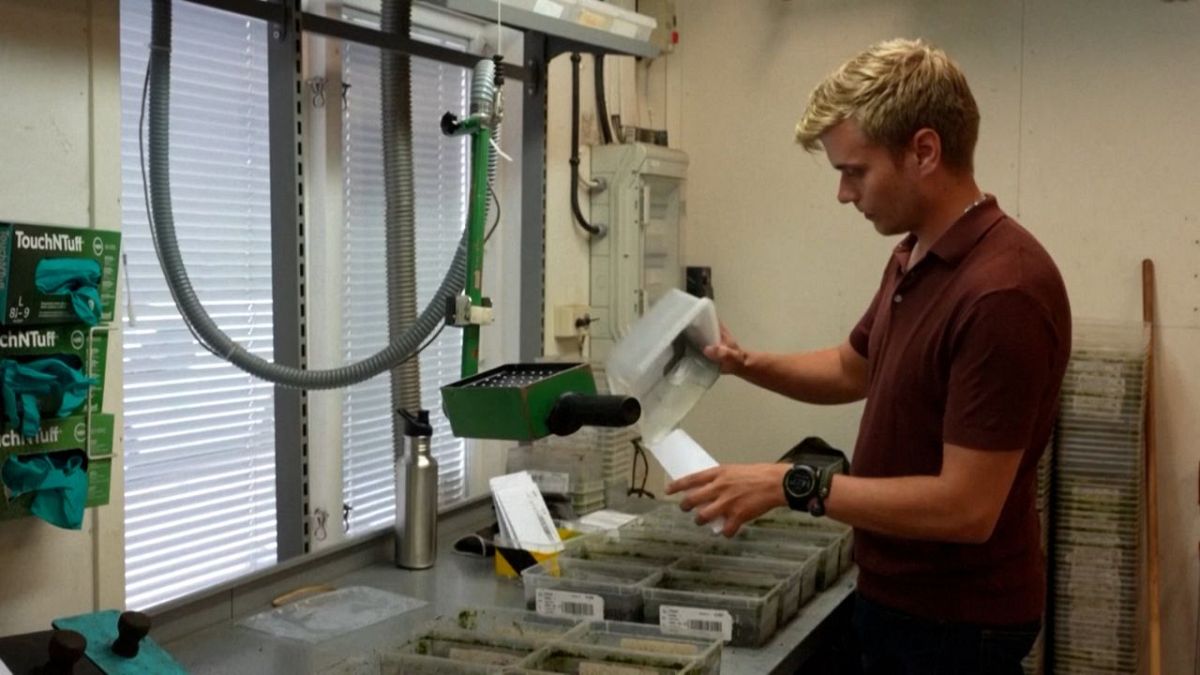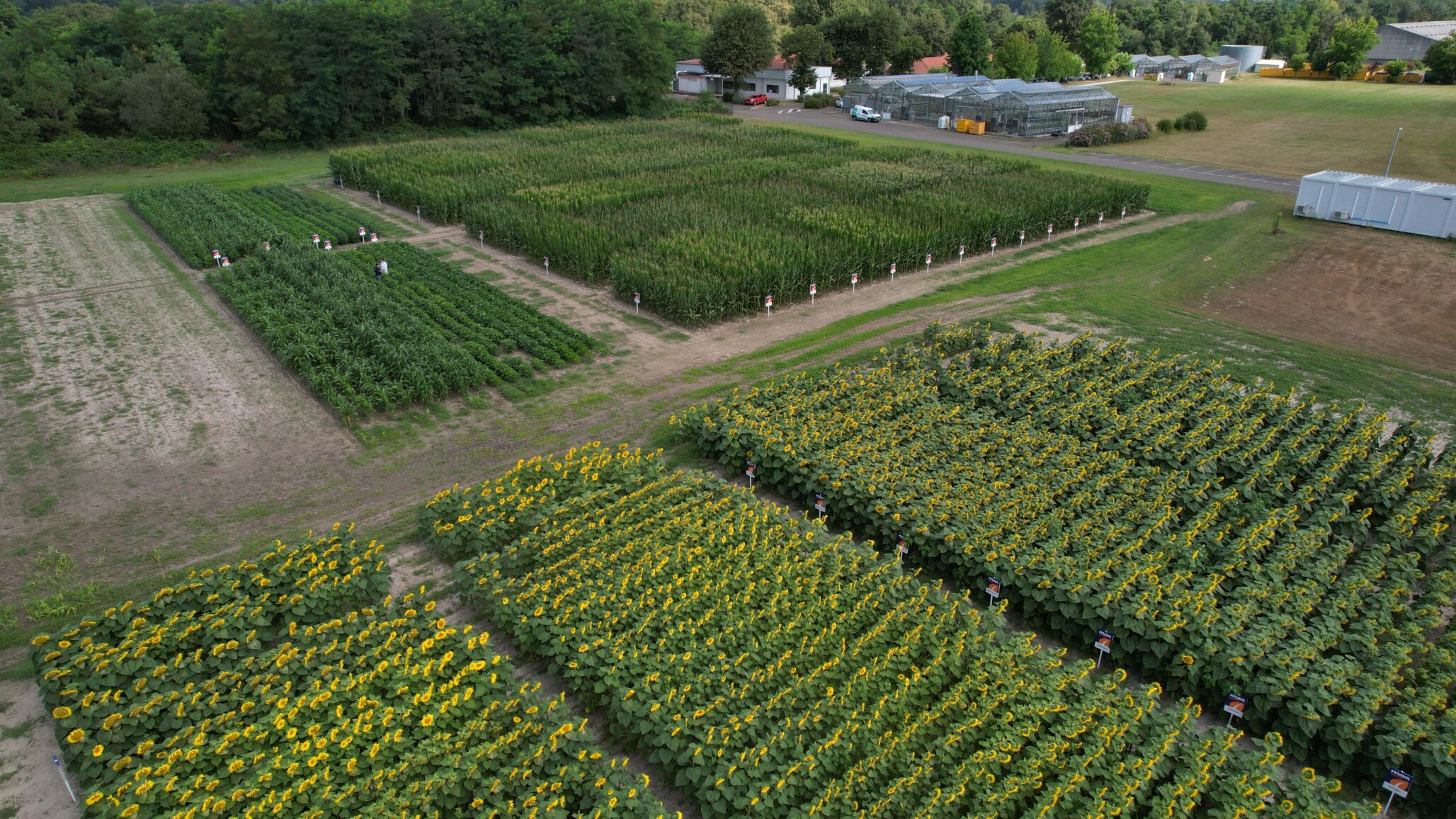Overview of ThermoSeed Technology
What is ThermoSeed?
ThermoSeed is a revolutionary seed treatment technology. It uses hot, humid air to eliminate seed-borne pathogens and pests, offering a sustainable alternative to chemical treatments.

This innovative process was developed in Sweden. It has undergone rigorous testing across various crops and climates, consistently demonstrating remarkable results.
How ThermoSeed Works: The Process Explained
The ThermoSeed process involves a precise combination of temperature, humidity, and time. This is tailored to each seed lot, ensuring optimal treatment.
A representative sample is analyzed. This analysis helps determine the ideal "recipe" to eradicate diseases, enhance seed vigor, and promote germination.
The seeds are then treated using specialized ThermoSeed equipment. This equipment, manufactured by the Dutch company Ventilex, provides a controlled environment for the hot, humid air treatment.
Key Features and Benefits of ThermoSeed Technology
ThermoSeed offers a chemical-free alternative to traditional seed treatments. This allows farmers to avoid exposure to harmful substances.
It enhances seed vigor, often surpassing the performance of chemically treated seeds. This leads to robust crop growth and improved yields.
ThermoSeed minimizes waste and contributes to sustainable farming. It aligns with global initiatives like the Green Deal, which aims to reduce pesticide use.
Impact of ThermoSeed on Sustainable Agriculture
Reduction of Chemical Usage in Farming Practices
ThermoSeed eliminates the need for chemical seed treatments. It significantly reduces the use of pesticides in agriculture.
This shift towards a chemical-free approach helps protect the environment. It also safeguards the health of farm workers and consumers.
Enhancing Seed Vigor and Crop Yields
Seeds treated with ThermoSeed exhibit exceptional vigor. This results in faster emergence, healthier plants, and ultimately, higher crop yields.
Studies have shown that ThermoSeed-treated crops can outperform those treated with chemicals. This is especially true in terms of yield production.
Aligning with Global Sustainability Goals
ThermoSeed aligns with international efforts to promote sustainable agriculture. It supports the goals of the EU's Green Deal by reducing pesticide use and promoting eco-friendly practices.

This technology contributes to a more sustainable food system. It helps reduce the environmental impact of agriculture.
The Role of ThermoSeed in Eco-Friendly Farming Innovations
Comparison with Traditional Chemical Treatments
ThermoSeed offers a compelling alternative to conventional chemical treatments. It delivers comparable or even better results without the associated risks.
Chemical treatments can contaminate soil, water, and air. ThermoSeed, being a physical process, avoids these negative environmental impacts.
Success Stories and Case Studies
ThermoSeed has been successfully implemented in several countries. Farmers worldwide have embraced this eco-friendly process.
In Norway, Felleskjøpet, a major agricultural cooperative, adopted ThermoSeed. It resulted in improved yields and reduced chemical use.
In Sweden, ThermoSeed has helped prevent the application of millions of liters of pesticides. It demonstrates the technology's significant impact.
Future Prospects for ThermoSeed in Agriculture
The future of ThermoSeed looks bright. There is a growing demand for sustainable agricultural practices.
The technology is continuously being improved. Innovations aim to streamline the process and make it more accessible to farmers globally.
Lantmännen BioAgri, the company behind ThermoSeed, is committed to expanding its reach. It is making this technology available to seed producers worldwide.
Sustainable Farming Practices Enhanced by ThermoSeed
Integration with Crop Rotation and Cover Cropping
ThermoSeed complements other sustainable farming techniques. It can be integrated with crop rotation and cover cropping for enhanced results.
Crop rotation helps break pest cycles and improve soil fertility. ThermoSeed-treated seeds further enhance these benefits by ensuring healthy, disease-free plants.
Cover crops protect the soil and improve its health. Using ThermoSeed-treated seeds in conjunction with cover cropping maximizes the positive impact on soil health and biodiversity.
Contribution to Soil Health and Biodiversity
ThermoSeed contributes to soil health by eliminating the need for harmful chemicals. Healthy soil is essential for sustainable agriculture.
By promoting vigorous plant growth, ThermoSeed supports biodiversity. A diverse ecosystem is more resilient to pests and diseases.
Economic Benefits for Farmers Using ThermoSeed
ThermoSeed offers economic advantages for farmers. It reduces the need for expensive chemical treatments, leading to cost savings.
Higher yields and improved crop quality can result in increased profitability. ThermoSeed-treated seeds can command premium prices in the market.
The technology also reduces the risk of crop failure due to seed-borne diseases. It provides farmers with greater peace of mind.
Challenges and Solutions in Implementing ThermoSeed
Financial Barriers for Farmers
The initial investment in ThermoSeed equipment can be a barrier for some farmers. However, the long-term benefits often outweigh the upfront costs.

Government incentives and financial support can help overcome this challenge. Many countries offer grants or subsidies for adopting sustainable technologies.
Technological Adaptations and Innovations
Ongoing research and development efforts are focused on making ThermoSeed more efficient. These are also aimed at making it more affordable.
Innovations like remote-controlled recipe systems are being developed. This is to simplify the process and reduce dependency on specialized labs.
Education and Training for Effective Use
Proper training is essential for operating the ThermoSeed system effectively. Lantmännen BioAgri provides comprehensive training and support to users.
The system is designed to be user-friendly. It can run autonomously for extended periods, minimizing the need for constant monitoring.
Conclusion
Summary of ThermoSeed’s Contribution to Sustainable Agriculture
ThermoSeed is revolutionizing seed treatment. It offers a sustainable, chemical-free alternative to traditional methods.
This innovative technology enhances seed vigor, improves crop yields, and reduces the environmental impact of agriculture. It aligns with global sustainability goals and promotes eco-friendly farming practices.
The Path Forward for Eco-Friendly Innovations in Farming
ThermoSeed is a prime example of how innovation can drive sustainability in agriculture. It demonstrates the potential of eco-friendly solutions to transform the farming industry.
As the world moves towards a greener future, technologies like ThermoSeed will play an increasingly important role. They will help ensure food security and environmental protection for generations to come.
Key Takeaways:
- ThermoSeed is a chemical-free seed treatment that uses hot, humid air to eliminate pathogens.
- It enhances seed vigor and crop yields, often outperforming chemical treatments.
- ThermoSeed aligns with global sustainability goals by reducing pesticide use.
- The technology offers economic benefits to farmers through cost savings and increased profitability.
- Ongoing innovations aim to make ThermoSeed more accessible and efficient.
This technology can be integrated with other farming techniques that revive ecosystems and boost soil health such as crop rotation and cover cropping.
